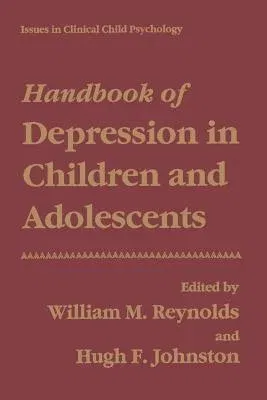Handbook of Depression in Children and Adolescents (Softcover Reprint of the Original 1st 1994)Paperback - Softcover Reprint of the Original 1st 1994, 1 July 2013

Qty
1
Turbo
Ships in 2 - 3 days
In Stock
Free Delivery
Cash on Delivery
15 Days
Free Returns
Secure Checkout
Part of Series
Issues in Clinical Child Psychology
Print Length
620 pages
Language
English
Publisher
Springer
Date Published
1 Jul 2013
ISBN-10
1489915125
ISBN-13
9781489915122
Description
Product Details
Book Edition:
Softcover Reprint of the Original 1st 1994
Book Format:
Paperback
Country of Origin:
NL
Date Published:
1 July 2013
Dimensions:
23.39 x
15.6 x
3.25 cm
Genre:
Mentally Challenged
ISBN-10:
1489915125
ISBN-13:
9781489915122
Language:
English
Location:
New York, NY
Pages:
620
Publisher:
Weight:
875.43 gm

